Day
A day is the period of time during which the Earth completes one full rotation on its axis. It is typically defined as the time it takes for the Sun to appear in the same position in the sky, which is about 24 hours. The concept of a day is fundamental to our understanding of time and is used to structure our daily activities and routines.
Key Concepts
- Rotation of the Earth: The Earth spins on its axis, causing day and night as different parts of the planet are exposed to the Sun's light.
- 24-Hour Cycle: A full day consists of 24 hours, with approximately 12 hours of daylight and 12 hours of darkness.
- Measurement of Time: Days are used as a unit of time to organize schedules, calendars, and daily life activities.
Study Guide
Here are some key points to remember and study when learning about days:
- What causes day and night on Earth?
- How is a day measured and divided into hours?
- What are some cultural and religious practices associated with the concept of a day?
- How do different regions of the world experience variations in day length?
- How does the concept of a day impact our daily routines and activities?
Understanding the concept of a day is crucial for comprehending timekeeping, astronomy, and the Earth's relationship to the Sun. It is also essential for daily scheduling and planning.
.◂Science Worksheets and Study Guides Sixth Grade. Weather patterns
Study Guide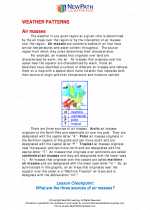 Weather patterns
Weather patterns  Worksheet/Answer key
Worksheet/Answer key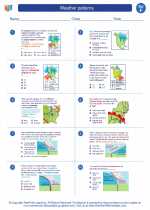 Weather patterns
Weather patterns  Worksheet/Answer key
Worksheet/Answer key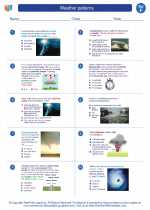 Weather patterns
Weather patterns  Worksheet/Answer key
Worksheet/Answer key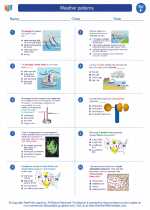 Weather patterns
Weather patterns  Vocabulary/Answer key
Vocabulary/Answer key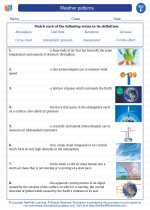 Weather patterns
Weather patterns  Vocabulary/Answer key
Vocabulary/Answer key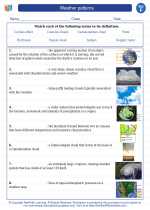 Weather patterns
Weather patterns  Vocabulary/Answer key
Vocabulary/Answer key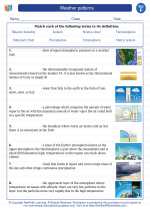 Weather patterns
Weather patterns  Vocabulary/Answer key
Vocabulary/Answer key Weather patterns
Weather patterns 

 Worksheet/Answer key
Worksheet/Answer key
 Worksheet/Answer key
Worksheet/Answer key
 Worksheet/Answer key
Worksheet/Answer key
 Vocabulary/Answer key
Vocabulary/Answer key
 Vocabulary/Answer key
Vocabulary/Answer key
 Vocabulary/Answer key
Vocabulary/Answer key
 Vocabulary/Answer key
Vocabulary/Answer key

The resources above cover the following skills:
EARTH AND SPACE SCIENCE
Earth’s Systems
Integrate qualitative scientific and technical information (e.g., weather maps; diagrams; other visualizations, including radar and computer simulations) to support the claim that motions and complex interactions of air masses result in changes in weather conditions.